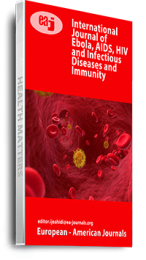D-penicillamine (DPA) was first recognized as a potential benefit for neonatal hyperbilirubinemia (NHBI). During this time there was a remarkedly low incidence of retinopathy of prematurity (ROP) in the infants treated with DPA. Later, our studies were replicated in other institutes in Hungary, Poland, U.S. A., India and Mexico. It is important to note that there was no intolerance or short- or long-term toxicity of the medication, in spite of the fact that in the newborn period DPA was used 10-20 times higher doses than those in adult. On the basis of an American research work concerning the beneficial effects of DPA-therapy in adult AIDS-patients (although in these cases there were many unpleasant, adverse effects), it would be reasonable to treat neonatal HIV- or Ebola-positivity due to vertical transmission with short-term DPA therapy (300 – 400 mg/kg/bw/day for 5-7 days). In addition, neonates born to mothers with Ebola virus disease have not survived yet, i.e. the lethality of this disease is 100 %. Therefore, we have a moral obligation to help the fight against HIV and EBOLA with this inexpensive (~30 US Dollar/baby) drug in the neonatal period.
Keywords: Aids, D-Penicillamine, Ebola, HIV, Neonatal Hypeerbilirubinemia, Retinopathy of Prematurity, Therapy

